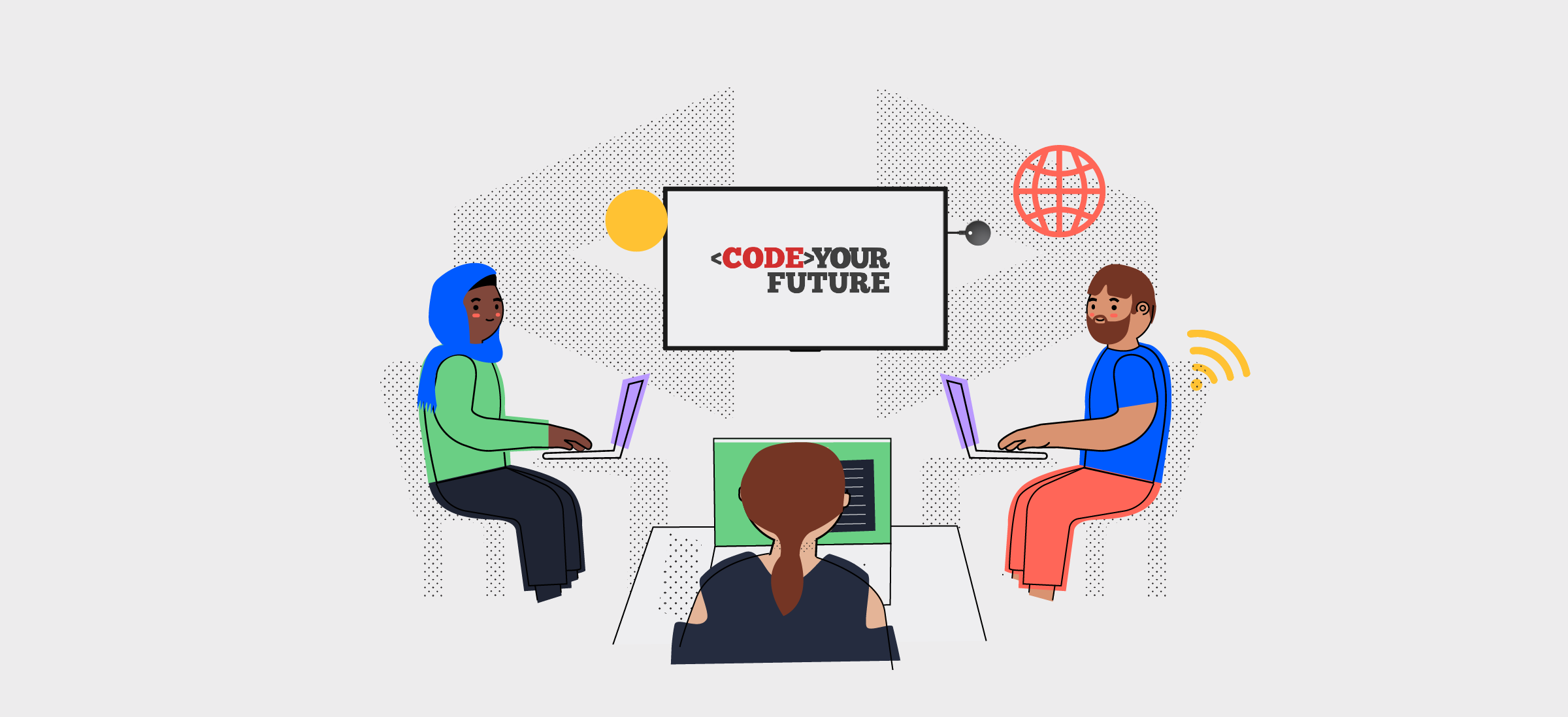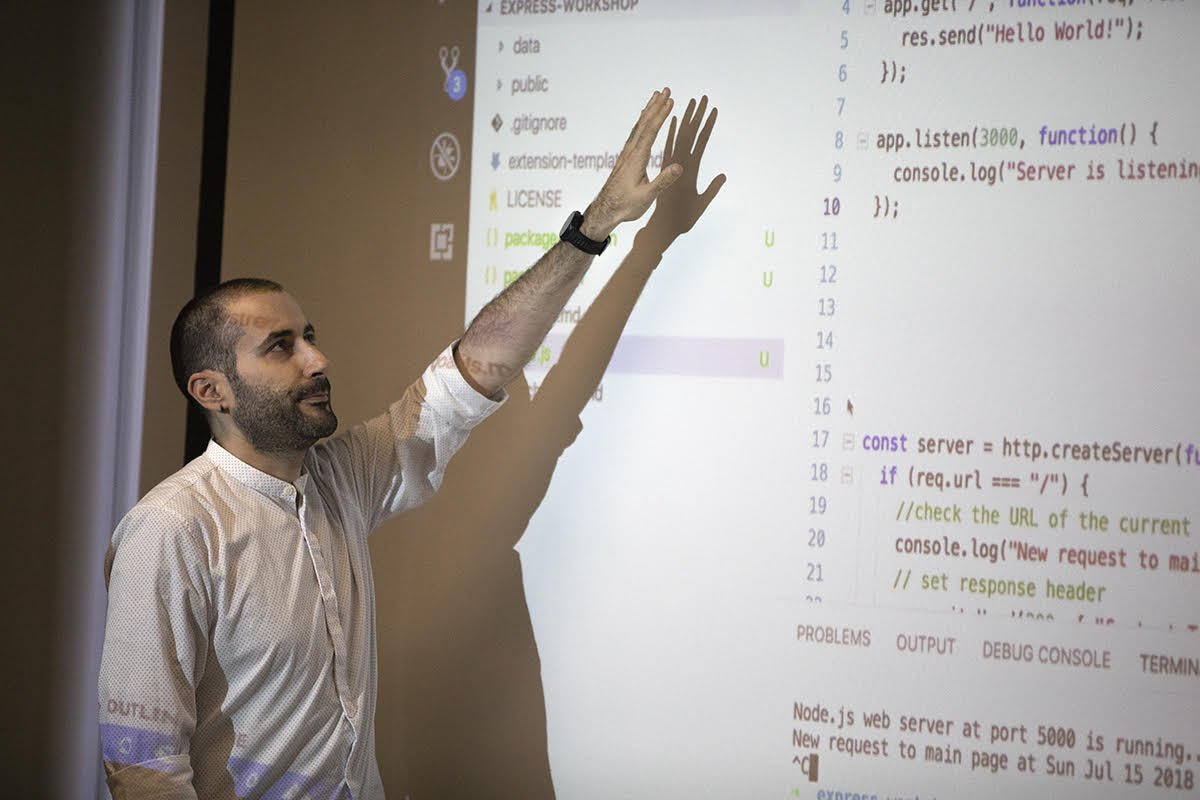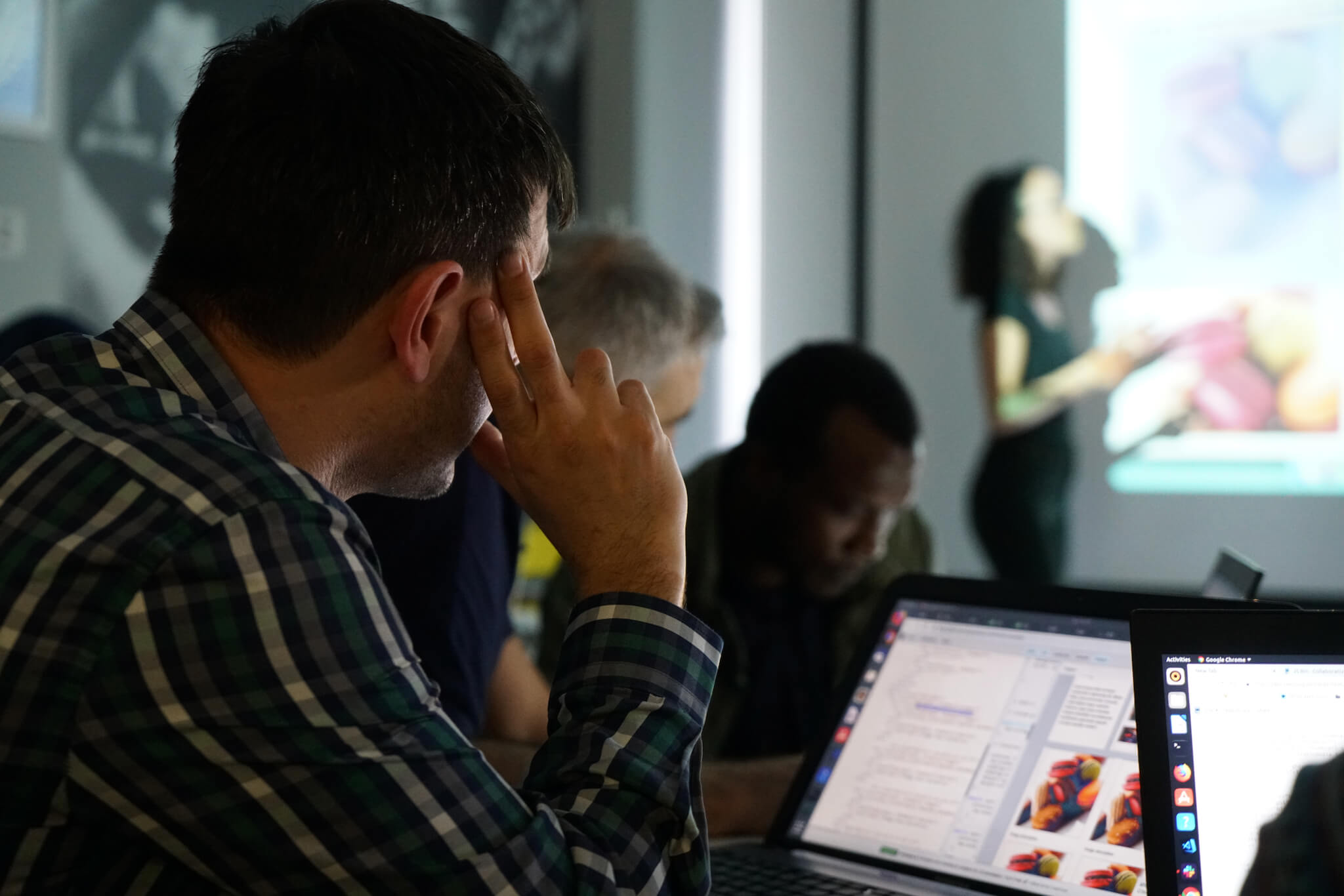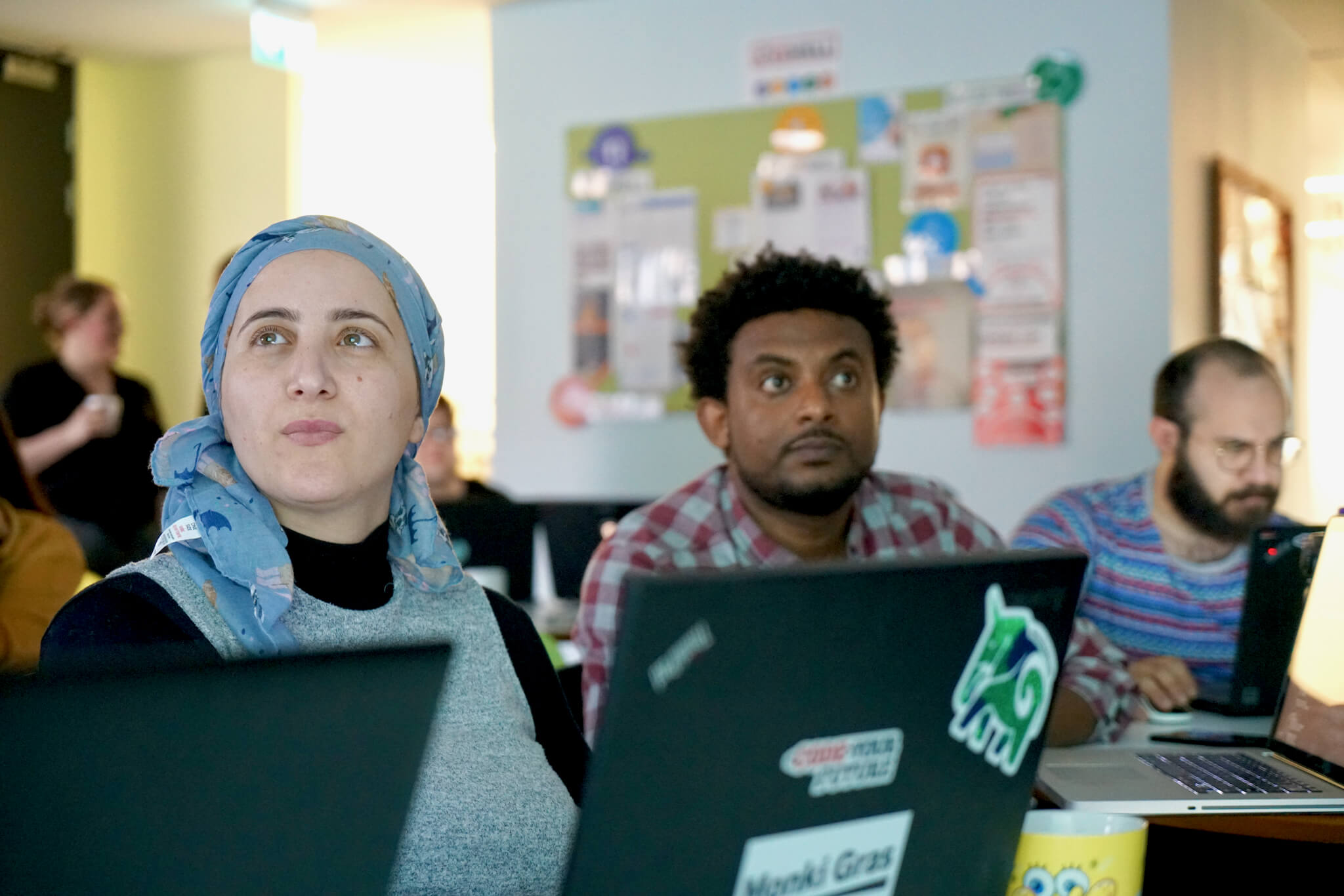Coding is one of the few skills that takes little time to learn and gives you instant job opportunities. We interview Code Your Future about teaching refugees how to code

Coding is one of the few skills that takes little time to learn and gives you instant job opportunities. We interview Code Your Future about teaching refugees how to code
We care a lot about modern workspaces and learning environments – especially those that push the envelope to do something different and important.
Code Your Future is one such example; a non-profit organization that teaches refugees how to code in order to have better job opportunities. They’ve got locations in London, Manchester, Glasgow, and now Rome too, with more than 100 graduates so far.
Because of the many cultural backgrounds of the refugees, it’s vital that the tech they use at Code Your Future is simple, reliable, and easy to use. That’s why we’ve recently gifted them four Airtames in order for them to succeed and create a better, open learning environment.
Germán Bencci is the founder of Code Your Future. We asked Germán for a chat about cultural differences, the modern workspace, and why coding is a great place to start if you want to learn a new, high in demand skill fast.
The refugee crisis in 2015 hit me pretty strongly. I’m from Venezuela myself, and over the past years, many of my countrymen have had to flee as well due to the political climate. So when I experienced it in Europe too, I immediately started thinking about solutions.
I think what really drove me to start Code Your Future was the fact that big tech companies made a lot of promises and pledged to have a positive impact on the crisis, yet nothing happened. That’s when I knew I had to step in and present something tangible, and it was natural to me to use tech as an enabler.

No matter their academic background or if they have one at all, many refugees find it almost impossible to get jobs other than cleaning, repairs or sewing, etc. Coding gives you a lot of other opportunities and skills that are highly sought after, but without having to spend many years training.
It doesn’t take a lot of time nor money to learn how to code, and it’s one of the very few skills that makes you likely to get a good job instantly. Coding ignores ethnicity, religions, and cultural background completely.
The opportunities and networks we have access to aren’t distributed evenly in society and, consequently, there’s a lot of social inequality. Disrupting that is pure magic! Of course, meeting new people and connecting with different, rarely represented cultures is also a fantastic bonus.
I guess it’s really mostly about taking the small steps towards change that inspires people to take the same small steps themselves.
People! People that want to make this happen. And a good portion of determination, welcome attitude, risk-willingness, and continuous yearning for improvement.
I’d also have to add that your ego should stay out of it. Working with what we do requires you to be selfless and open in a way we rarely are today. We’re non-profit, so we simply can’t think of it as a traditional business venture.

First of all, I genuinely feel that there’s a lot of good will and intentions in the tech industry. Tech products are used by millions of different people with tons of different backgrounds, so in order to cater to them, tech companies have to understand them and embrace their differences.
I think tech companies should be aware that they still have biases and then try to let go of them. They’ll be pleasantly surprised if they go outside their comfort zone a bit more.
The most important thing for a modern workspace is understanding where their workforce is coming from. The same thing that goes for, say, Italian culture isn’t always a given for people with other backgrounds.
With the proper training, an open attitude as well as transparency, companies can come a long way. It’s imperative that companies figure out exactly what kind of company they want to be. What does the hierarchy look like? What about daily communication? Are you only considering a certain personality type? And so on.
When companies do that bit of ‘soul searching’, they’ll understand what they have to do to get to where they want. And maybe if the structures that are already implemented should be disrupted.
The most amazing thing I’ve learned is definitely that people are more than willing to share knowledge, help out, and make a difference. On the other hand, it’s equally amazing how willing the refugees we meet are to learn something new.
People basically want the same thing. They want to feel part of a group, they want basic safety in life and a sense that what they do matters. I’ve found through Code Your Future that it’s all possible if we’re open and treat other religions and cultures respectfully. We can achieve so much if we just acknowledge how alike we are deep down.
I can only speak for Code Your Future, but I believe this is applicable for other businesses too. Everybody needs work equipment that’s easy to understand and simple to use. Dashboards and big screens, for example, can quickly give workers a summary of the company’s impact and metrics. Tools like that empower your employees to feel connected and are a conversation-starter cross-team.

We have so many, it’s hard to just pick one. I’ll tell you the story of Louis who fled from Cameroon and rose from homelessness to a full-time developer.
After fleeing Cameroon, Louis found himself alone on the streets of London, scrambling to get by. He lived on the streets for a full year, after which he found a job as a cleaner and simultaneously enrolled in college to learn English. With no prior experience, he was afraid Code Your Future wouldn’t accept him into the course, but I told him to apply anyway.
He graduated from Code Your Future after just a few months and landed his first full-time job as a developer immediately thereafter. He laughed and told me he could have never dreamt of a life like this before, yet here he was! That made me so happy.
We try to give people the skills to become independent in a foreign country, and it’s amazing every time we succeed. It’s possible because we teach not only coding, but also communication, and how to work in a professional environment. Louis tells me he has a new dream now: to become a full-stack developer and teach others, just like we do, how to code. I’m confident he will do just that and help those who are in the same situation he was.
One of the reasons why Airtame has helped us so much is that you can be in a room with 30 laptops and people sitting in front of their computers working but still share the same experience. Airtame creates a unified feeling where everyone can be part of the same storytelling experience.
For us, it becomes a classroom environment where we break down hierarchy and let everyone be part of the discussion. Airtame allows people to tell their own story smoothly, no matter their cultural background, and share their problems in a visual way, and it’s very empowering to be a part of.